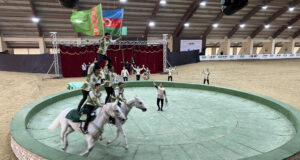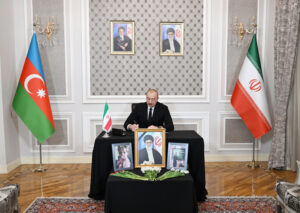Azerbaijan Marks the 4th Anniversary of the Start of the Patriotic War

Baku, The Gulf Observer: Today marks the fourth anniversary of the start of Azerbaijan’s Patriotic War, launched in response to Armenia’s military aggression on September 27, 2020. Under the leadership of President Ilham Aliyev, Commander-in-Chief of the Republic of Azerbaijan, the nation undertook a determined effort to liberate its territories from occupation. The war, which lasted 44 days, was a crucial moment in the country’s history as Azerbaijani forces restored the nation’s territorial integrity through the “Iron Fist” operation.
Azerbaijani soldiers and officers demonstrated immense bravery and sacrifice, while civilians, working on the home front, displayed unity and solidarity, contributing to the country’s decisive victory. The war came at a high cost, with 2,908 Azerbaijani military servicemen losing their lives, and six still listed as missing. Many others were injured, while countless civilians suffered as a result of Armenia’s attacks.
Armenian Aggression and War Crimes
During the conflict, Armenian forces targeted innocent civilians, committing war crimes by shelling several Azerbaijani cities and regions with ballistic missiles and heavy artillery. Azerbaijan’s second-largest city, Ganja, along with Mingachevir and Yevlakh, were among the areas hit. In Ganja, missile attacks on October 4, 5, 8, 11, and 17 killed 26 people and injured 175. Similar attacks on Barda resulted in the deaths of 29 civilians and injuries to 112 others.
In total, Armenian aggression resulted in the deaths of 93 civilians, including 12 children and 27 women, and injuries to 454 more. Civilian infrastructure across Azerbaijan suffered significant damage, with over 12,000 residential and non-residential settlements, 288 vehicles, and 1,018 farms affected.
Armenian forces also used prohibited phosphorus bombs, causing widespread damage to civilian areas and natural resources, including valuable forests in Azerbaijan’s Shusha region. These acts violated international law, including the Geneva Conventions, further exacerbating the suffering during the war.
Azerbaijan’s Victory and the Road to Peace
Azerbaijan’s victory was achieved through a series of critical military operations, liberating key areas including Jabrayil, Fuzuli, Zangilan, Gubadli, and the city of Shusha, which was freed on November 8, 2020. This victory paved the way for the signing of the trilateral statement on November 10, 2020, between Azerbaijan, Armenia, and Russia, ending hostilities and solidifying Azerbaijan’s success in reclaiming its lands.
The statement also led to the deployment of Russian peacekeepers along the contact line in Nagorno-Karabakh and the Lachin corridor, aimed at maintaining peace in the region. It facilitated the restoration of economic and transport links and ensured the return of Aghdam, Kalbajar, and Lachin districts to Azerbaijan without further military losses.
On August 26, 2022, Azerbaijan regained control over the city of Lachin and surrounding villages, and by April 23, 2023, Azerbaijan had fully restored its sovereignty, establishing a border checkpoint in the Lachin region.
Commemoration and Remembrance
On December 2, 2020, President Ilham Aliyev decreed that September 27 would be observed annually as the Day of Remembrance in Azerbaijan. This day honors the soldiers, officers, and civilians who sacrificed their lives in the Patriotic War for the nation’s sovereignty and territorial integrity.
Today, the people of Azerbaijan come together to remember their martyrs and celebrate their unity, resilience, and victory. Several commemorative events are scheduled across the country, marking the profound respect the Azerbaijani people have for those who fought and perished in the struggle for liberation.
As Azerbaijan reflects on this day, the country remains committed to building a peaceful and prosperous future, while honoring the sacrifices that brought about the long-awaited liberation of its territories.


